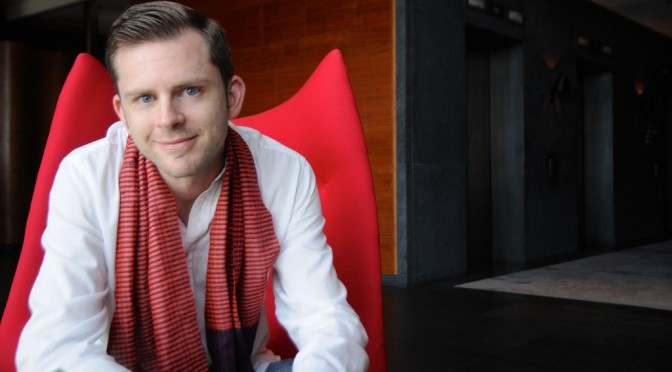Chris Guillebeau ist Entrepreneur, NYT-Bestseller-Autor, Weltreisender (er hat alle Länder der Erde besucht). Am 5. April erscheint sein neues Buch „Born for this“ auf Englisch bei Crown Business. Über eine deutschsprachige Version geht es auch im Interview. Deutsche Ausgaben von Chris‘ Büchern erscheinen unter anderem bei meinem alten Arbeitgeber mvg-Verlag („Die Kunst, anders zu leben„).
 Who exactly needs this book – and why do they need it? Who did you have in mind when you wrote „Born for This“ – freelancers, employees wishing to break free, entrepreneurs?
Who exactly needs this book – and why do they need it? Who did you have in mind when you wrote „Born for This“ – freelancers, employees wishing to break free, entrepreneurs?
This book is for anyone who wants to “level up” — to make a massive difference in their life and work. As I mention in the introduction, if your job sucks, gaining the right to leave early one Friday a month won’t help. If you’re in debt or need more money, a 4% raise won’t do it.
The goal is to help people gain the tools and resources they need to thrive in their careers, whether by working for themselves or as part of a larger company or organization.
What’s the one message every reader should get after reading the book?
Most successful people make active choices, not passive ones. Sure, there’s more than one path you can go down—but the more you learn about yourself and apply those lessons to your job search or business-building plan, the better off you will be.
One of the most interesting ideas in the book is, that we are all more or less self-employed, especially in times of uncertain jobs, the „working poor“ and non-linear career paths. What’s the single most important skill people should have, get or train these days, in your opinion?
In the book I make the distinction between “hard skills” (what you learn in school) and “soft skills” (what’s needed to stand out in the workplace). People often focus on improving their hard skills, like learning new software or gaining a particular certification, but it’s just as important to build up your soft skills.
The art of follow-through is especially important—learn to be that person everyone trusts to see something through. When you say you’re going to do something, make sure you actually do.
How do you choose your partners in business – for example, why did you publish your book with Crown Business? How do you choose assistants, editors and co-founders for your ideas?
I’m not necessarily that strategic. I work with a very small group of people—fewer than 10 on a regular basis. Of course, the community is much larger, but those are the ones I work with consistently and every day. Crown Business has been a strong partner for years and in the U.S. at least, I think they’re the best at what they do. My assistant got the job after she volunteered to complete a menial task for free. She did a great job on it and so I said … “Want to do more and actually get paid?”
A similar question: Someone comes to you and asks: „I’m past 50 now and still wasn’t able to do anything with my life but sell my time and energy to an employer, is there still hope?“ – What do you say?
There are a lot of people in my community who are facing that situation. So the first thing I’d say is “You are not alone.” Having a “second act” can be very powerful. Past age 50, you may feel that you don’t have the technological skills of a younger generation. But these are things that anyone can learn. What you do have is life experience and wisdom. Your goal is to transfer that experience and wisdom into the second act.
You recruited a small army of your own to help promote the book, your „street team“. What qualifies people for this quest – and what do you expect from them?
I’m not sure it’s a proper “quest”—mostly I just need help! My books have been successful in the past not because of some big marketing effort, but because regular people have told others about them. I always want people to take action on the ideas in my books, not just read them for entertainment. So the Street Team is critical to that effort.
Are you going to come to Europe, and especially relevant to the readers or „Alles fließt“: will there be a German edition of #BornforthisBook?
Absolutely! I don’t know the timing yet but there will definitely be a German version and I’d love to tour in Europe to meet readers. As soon as I have dates, we’ll post them on BornforThisBook.com.
Header foto: Chris Guillebeau @Flickr


